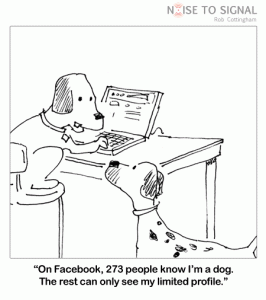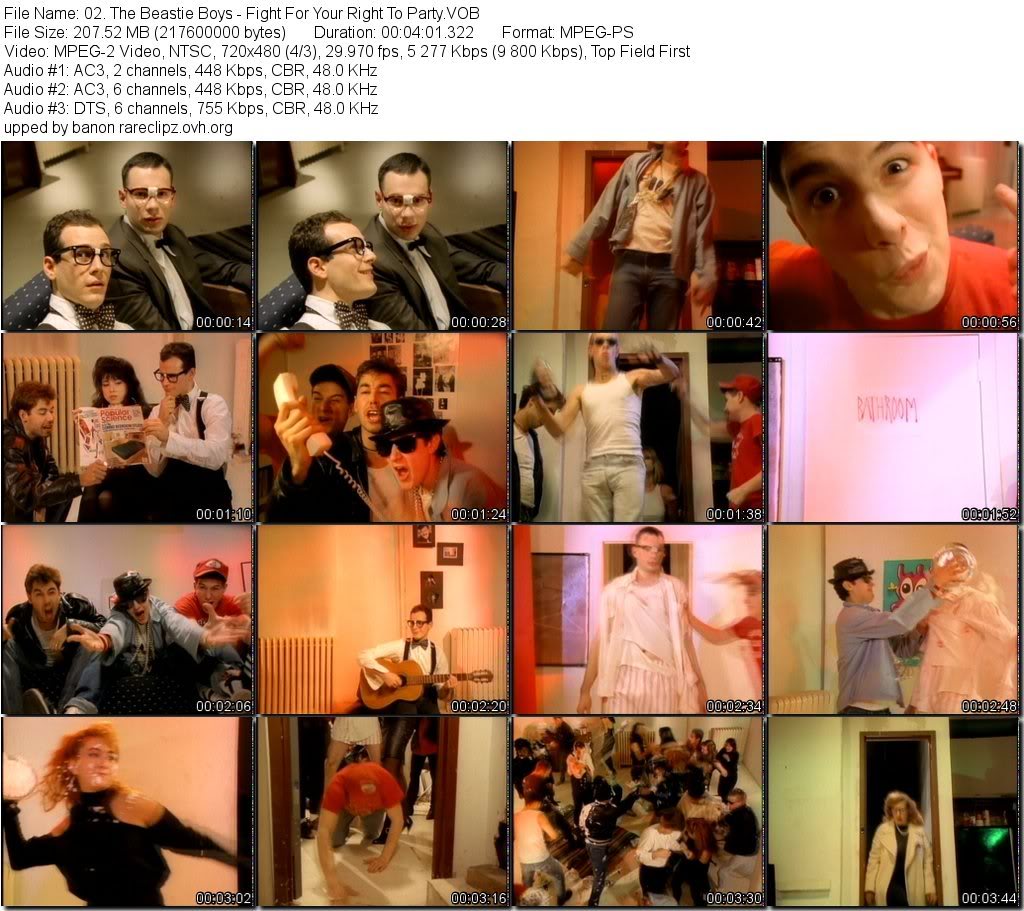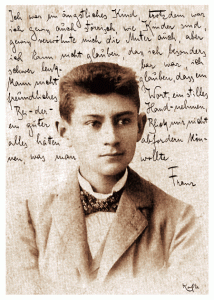I. Dissensus and heteroglossia.
II. Nonhominem: a proposal for non-shaming but non-excluding speech.
[response to a post, “Disagreement” from Kathleen Fitzpatrick of the Modern Language Association, 26 January].
Thank you Kathleen for another thoughtful response. I hope, and think, it isn’t a fundamental disagreement with me.
“Dissensus” feels better, and perhaps even better would be “heteroglossia” — many voices within one text. I’d like to adopt that as my first theme in replying. I ask forgiveness in advance for choosing a writing form less measured and mannered, deliberately capacious and perhaps a bit anarchic. And for the degree to which “heteroglossia” may mean, “hastily assembled; generally off the chain.” ;)
I cheerfully agree with your wish to “not be the civility police,” and ask your indulgence if I relaxedly weave in various related things I’ve been reading, enjoying, and thinking about today. That did, I’m afraid, include most of the 1951 season 1 of Dragnet, and classic Beastie Boys and Public Enemy videos, etc., but work with me here.
As background, and because Follow Friday when we began, should lead to Scholar Sunday, and Sunday Listen — first listen then be listened to — I’d like to layer in two classic educational-reform anthems to heterogloss our subject. They’re not exactly harmonious, in themselves or together, but I’ll say they’re fitting, in the Horatian rerum concordia discors (“discordant concord of things”) manner. I refer, of course, to
- “(You Gotta) Fight for Your Right to Party“. (Beastie Boys, 1986); vs.
- “Party for Your Right to Fight” (Public Enemy, 1988).
The lyrics are transcribed in the comments: street-scholar wisdom, and to those of a certain ages, generational anthems. The Beastie Boys track in particular, is a critique of education, but it was actually written as a parody of anti-school hedonist paeans like “Smokin’ in the Boys Room,” and criticizes education for being too undemanding and unconducive to learning:
You wake up late for school – man you don’t wanna go
You ask you mom, “Please?” – but she still says, “No!”
You missed two classes – and no homework
But your teacher preaches class like you’re some kind of jerk.
You gotta fight for your right to party
This ironic critique is joined to a classic “breaking down the doors,” “throwing pies in faces” narrative in a cheerful way I continue to find inspiring. Here’s a visual synopsis of the video:
Now why do I bring this up? First, because from the crooked timber of my day’s Web browsing no straight thing ever was made.
Secondly, to foreground a pertinent fact: we probably are on slightly different wings of the revolution, you being Director of Scholarly Communications for the Modern Language Association, and me plumbing Beastie Boys videos for inspiration, from a converted garage in Palo Alto.
We probably have somewhat different projects in mind when we think what we might do with Twitter, and what is “collegiality,” which may explain why we seem to disagree:
- I’m particularly interested in weaving many types of discourse into fluid recombination, within and without academia, perhaps suspending disciplinary structure in many cases (crash the party! “Unscrew the locks from the doors! Unscrew the doors themselves from their jambs!”). For projects such as Open Library of Humanities, we are in a way, crashing a party; transgression and disruption are leitmotifs. To paraphrase Sen. Paul Wellstone, I’m from the Open Access wing of the Open Access party. I’m Big Tent and Bring the Noise.
. - You, I think, are particularly and rightly more interested in building discourse within and for a specific profession and disciplinary field (fight for, host our party). Being a director of a major academic professional association, this makes sense.
To some extent, these map to certain archetypal poles that underlie many of our outlooks and inclinations — in the endless two-party system and Spy v. Spy of the soul. For example, a bias towards change or towards conservation; whether one intuitively feel more in need of greater autonomy, or of stronger relationships? How enfranchised is one, or how secure in that enfranchisement?
However, I will suggest that the interests of humanities academics, and of Twitter globally, are interwoven; and relatively open, global fora such as Twitter present a great opportunity for academia to turn more outwards. That is, to the public, the heterogeneous, the heterodox, and the heterogloss — in other words, towards the edge of our own norms. As I argued in an earlier post, “How To Bring Academics to the Social-Media Party” (Jan 14), I think scholarly innovation will come from creating much more global, pervasive, and fluid recombination of thinkers.
Take the counterexample you praised, which Ryan Cordell described in his post “Mea Culpa: on Conference Tweeting, Politeness, and Community Building,” about interacting with a colleague at a conference:
She was right. I was wrong. I tweeted an apology, but the entire affair, coupled with Kathleen’s post, kept working on me. I ended up chatting with Elaine for several hours yesterday evening about electronic fora, professionalism, and valid critique through channels such as Twitter.
Now, of course I admire this engagement and professionalism, and have no doubt this was a valuable experience.
But coming from Silicon Valley, I must ask the fundamental question: does it scale? It strikes me that only in a tiny portion of cases could Twitter interlocuters have the opportunity to sit down for a few hours to work through their disengagement. In this case, it happened because two people, though relative strangers, were together in person, in a profession, discipline, and conference. Compared to the vast world of Other-encountering in a global forum like Twitter, the Cordell case is fairly atypical.
Rereading your posts, I wonder if you think we disagree because I differed from your disagreement with the Twitter snark-and-shaming culture. However, I’d emphasize that if I counter a response, it doesn’t mean I countenance what was first criticized; it may be to suggest a reframing or repositioning against a common adversary.
Your last post argued,
to say that, as a corollary, we have to permit uncivil speech, public insult, and shaming — that anyone who resists this kind of behavior is just demanding that everyone agree — is to say that…the person who utters it has no responsibility for pausing to consider that other’s position. And there, I disagree quite strongly. (As does, I think, Postel; being liberal in what you accept from others has to be matched by being conservative in what you do for the network to be robust.)
I’d never intend to say that “the person who utters has no responsibility for pausing to consider” — as a traditionally “look before you leap” type myself, or better “look, read, Google, Wikipedia. Discuss. before you leap.” I quite agree with you about this type of conservativism, which is why I brought in Postel’s Law to start with.
In this case, we certainly have a common adversary: silencing, de-networking, throttling of voice, traffic, signification. Obviously we are People of the Word (Irish branch, apparently..); the common word, the networked word, and the common reader; and from that, as Thatcher said, the lady’s not for turning — nor am I, to anything that silences.
It was a technosocial rumination on what helps our networks remain unsilent that made me respond to your original post, “If You Can’t Say Anything Nice.” I of course agree that people should not be shamed, pointlessly snarked or sniped in this new public space.
However, I was also reminded of the Robustness Principle, or related End to End principle, which are network architecture principles evolved for handing global networks of vast, entropic heterogeneity — which would, I think, describe the Twitter/blogosphere, and the discourses I’m especially interested in building. These principles incline away from guiding network behaviors, and towards putting adaptation and implementation in end-points (thus “End to End” principle).
Thus, Internet-type network models might be said to aim for liberality through architecture rather than regulation. (yes, I realize this is, in fact, another form of regulation; but consider the analogy of using urban design vs. policing to achieve social aims).
In particular, the Robustness Principle (Postel’s Law) makes an interesting assertion that, contrary to our Golden Rule human way of thinking, it may be fatally fragile and unscaleable to expect to be treated as you treat others. Because this may not allow for the entropy and contingency of such a large, diverse, and dynamic system. For network resilience, Postel observed, end-points should “listen well,” i.e. more tolerantly than they expect to be listened to..
Of course, we are not computers, nor these natural laws, so applying this to Twitter is reasoning by analogy, not proving anything. However, the Robustness Principle resonates with many social observations — such as Stephen Covey‘s maxim “first understand, then be understood”, or the idea of social “slack.” Also I, for one, welcome our new robot overlords’ example on network matters — as I sit here, compellingly able to discourse so readily on top of networks so built.
Part II: Nonhominem: a proposal for non-shaming but non-excluding speech via Twitter pseudonyms.
Heeding Cathy Davidson’s call for critical contribution rather than just critical thinking, our discussion gave me an idea for a specific tool/service to build in or for Twitter, to potentially help with the issues of civility and non-shaming.
I’m calling it Nonhominem — at least, until my branding consultant and IP lawyer get back from Bali or Davos or wherever they are this week (what am I doing wrong?) and tell me what else. Nonhominem as opposed to ad hominem, (Latin, “to the man”), short for argumentum ad hominem, an argument made personally against an opponent instead of against their argument.
Nonhominem, because these neologisms, as the Beastie Boys said, they can’t, they won’t, and they don’t stop.
I’ve got the savoir-faire with the unique rhyme and
I keep it on and on, it’s never quitting time and…
To send my rhymes out to all the nations
Like Ma Bell, I’ve got the ill communications…
Nonhominem because, let’s face it, naming and direct address can steer into the treacherous shoals of power relations and gender roles, for example.
This is a specific idea for supporting civility in Twitter use. It was suggested first, by this exchange in the Twitter/blog dialogue: Fitzgerald originally wrote, in “If You Can’t Say Anything Nice“:
there is a significant difference between thoughtful public critique and thoughtless public shaming….How can we develop modes of public critique that are rigorous and yet respectful? How can we remain aware that there are people on the other end of those @mentions?
Matthew Kirschenbaum then commented:
equally problematic and disturbing to me [is] talking about someone…and *not* @-mentioning them….That strikes me as equally harmful, and as destructive of the open discourse and dialogue that is as close to a universal academic value as we’re ever likely to agree upon.
That got me thinking: perhaps another design is possible, so we might mention and include but not name, engage but not necessarily publicize others, by built-in pseudonymizing.
 As in the lead-in to Dragnet:
As in the lead-in to Dragnet:
The story is true. The names have been changed to protect the innocent.
This reminded me of the Chatham House Rule used by The Royal Institute of International Affairs, London, to encourage discussion at events by forbidding the later quoting of participants:
When a meeting, or part thereof, is held under the Chatham House Rule, participants are free to use the information received, but neither the identity nor the affiliation of the speaker(s), nor that of any other participant, may be revealed….The world-famous Chatham House Rule may be invoked at meetings to encourage openness and the sharing of information.
This rule is for in-person events, where the actual participants see and hear each other, but what might be an equivalent for fully online discussions in which participants or referred-to parties may not know or meet each other at all?
But say you want to specifically refer to somone, so they are included in the conversation, but you don’t want to name and fear shaming that person?
So this prompts the idea I’ll call “nonhominem mentions”.
Let’s say, when writing a tweet, you have some reason to mention another person — which has the effect of looping them into the conversation and notifying them of this and any subsequent response. So you’d write something like:
My friend @franzkafka_ asked me to pass around these stories of his for feedback. http://t.co/imruqO0G
— OARReR (@OARReR) January 28, 2013
Except, let’s say that this friend Franz is a frail, alienated, hypersensitive type, fearing to admit to his employer or family that he aspires to be a great writer. In your sophisticated Mittel-european city, sending around Franz’s sheaf of bizzaro story fragments is sure to cause great hilarity and merciless mockery of poor, ungainly Franz. Also these days, community isn’t so much developed in the old coffeehouses and academies with face-to-face interaction, but in vaster, distributed spaces like Twitter.
Now let’s say there is a new feature built-in to Twitter (or external, see this option below), whereby instead of having to name and shame Franz, you could write
My friend #nonhominem@franzkafka_ asked me to pass around these stories of his for feedback. http://bit.ly/WroyAF
to indicate you wish to pseudonymize Franz’s name. The system, upon seeing #nonhominem@franzkafka_ (or any name preceded by #nonhominem) does a few considerate things on Franz’s behalf:
- Turn Franz’s name @franzkafka_ into a new, unique account name that will represent @franzkafka_ but not be decipherable to anybody other than you and Franz.
.
My friend @rewf34rwaf3 asked me to pass around these stories of his for feedback. http://bit.ly/WroyAF
.
- Anytime that new account name is mentioned or message to, notify Franz as if his actual account name had been used.
 Now, unlimited discussion and mentioning of Franz and his work can occur, amid the growing global community that appreciates these strange literary fragments. Franz is included in this conversation wherever it goes, without being at all identifiable as the person behind the account. Franz finds his Max Brod who mentors him and saves his work, and genius is fostered and saved.
Now, unlimited discussion and mentioning of Franz and his work can occur, amid the growing global community that appreciates these strange literary fragments. Franz is included in this conversation wherever it goes, without being at all identifiable as the person behind the account. Franz finds his Max Brod who mentors him and saves his work, and genius is fostered and saved.
Of course, in the current system anyone can create a pseudonymous account. What you can’t do is pseudonymize anyone you wish to mention, on the fly — so you must either name and potentially shame them (Fitzgerald’s original concern), or not mention them and thereby exclude them from the conversation (Kirschenbaum’s concern).
A system like Nonhominem would not, likewise, prevent anyone from saying anything they want about you. However, as long as the pseudonymity is preserved, a core aspect of shaming is removed — being visible judged in front of your community. In addition, your inclusion in this mentioning is much more under your control: you can choose to turn off the alias which links the pseudonym to your real account, and therefore stop hearing about the mentions.
Now, given that Twitter these days seems more concerned with getting you to follow Justin Bieber than in protecting a fledgling Franz Kafka, I wouldn’t hold my breath for them to implement a Nonhominem feature.
 However, it could be at least approximately done by a 3rd party service, call it ThirdHominem, similar to today’s link-shortening services like Bit.ly. You would go to such a service, put in a Franz’s account name @franzkafka_, and it would register this, and generate a corresponding new unique hashtag, like #rewf34rwaf3. You would then use this hashtag in your message about Franz as above, except using this hashtag instead of the pseudonymous account name.
However, it could be at least approximately done by a 3rd party service, call it ThirdHominem, similar to today’s link-shortening services like Bit.ly. You would go to such a service, put in a Franz’s account name @franzkafka_, and it would register this, and generate a corresponding new unique hashtag, like #rewf34rwaf3. You would then use this hashtag in your message about Franz as above, except using this hashtag instead of the pseudonymous account name.
My friend #NHrewf34rwaf3 asked me to pass around these stories of his for feedback. http://bit.ly/WroyAF
Then, ThirdHominem would monitor global Twitter traffic for messages mentioning this hashtag, and forward them to Franz when found. As with the 1st approach, the association between the code and Franz’s real account would be invisible to anyone by Franz and its creator. ThirdHominem would provide a “dragnet” service, dredging the net to find any sign of Franz’s pseudonym.
Going further, this approach could perhaps be extended to the referencing of not only people / Twitter names, but any named entity. Thereby, specific references in a aspects of an otherwise public discussion could be obfuscated to anyone other than an intended group, which might or might not be specified.
Conclusion
 The strategy of nonhomination described above might ring a bell to academics — or blow a dog-whistle, as they say in politics — because this selective obfuscation and layered reveal is, of course, something done all the time in everyday language. That is, by the use of jargon or argot, allusion, irony, and the many other linguistic and performative ways we don’t ever, really, communicate fully publicly or transparently.
The strategy of nonhomination described above might ring a bell to academics — or blow a dog-whistle, as they say in politics — because this selective obfuscation and layered reveal is, of course, something done all the time in everyday language. That is, by the use of jargon or argot, allusion, irony, and the many other linguistic and performative ways we don’t ever, really, communicate fully publicly or transparently.
Perhaps our Artificial Intelligence successor race will do such things, after the Singularity predicted for sometime in 2030-2045; but not our crooked-timbered humanity — thankfully.
Nonhominem would just apply a bit of this performative/social intelligence we have, to the larger forum of Twitter. A bit of civilizing of our tools.
Perhaps, this whole idea won’t work. But I use it to to suggest a principle: we should not only call for civility, and try to behave well, but also design for liberality. This, I believe, is the most global, heterogloss, and scalable strategy for better communication and thinking, scholarly or otherwise.
Extension of Nonhominem to objects other than persons, and pointing out the likely flaws in the main part, I leave as an exercise for readers, who know more about this than I do. Do be reasonably nice, though. Remember, I know you, maybe. You know me, maybe. You can also reach me less publicly on Twitter at @tmccormick, at Gmail tmccormick, or via the contact form at tjm.org.












Pingback: Steering between incivility and insularity | Tim McCormick
@bodyspacesoc as an alternative to #subtweeting, I propose nonhominem, a notifying pseudonym system http://t.co/sqr5N20r7s; also @tmailr